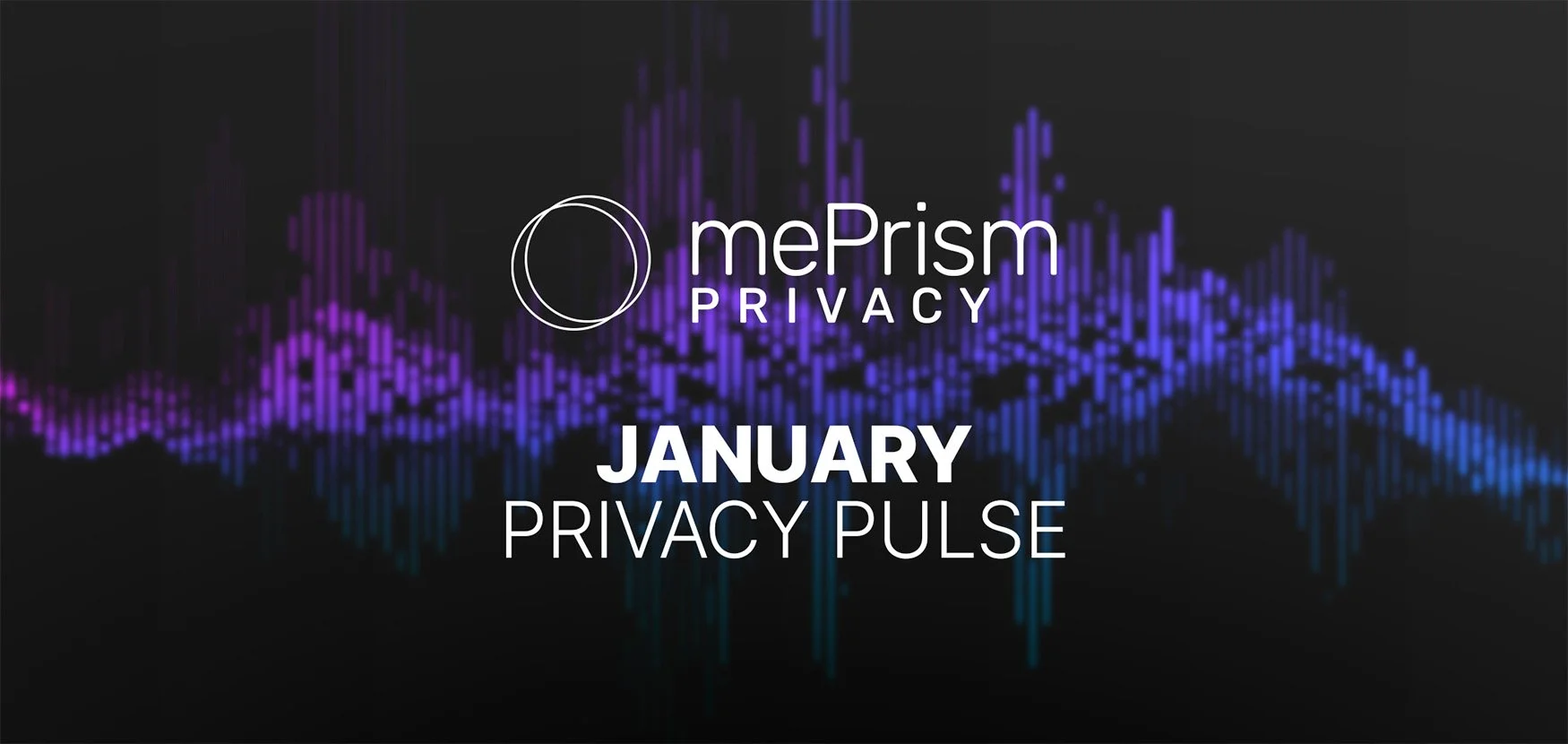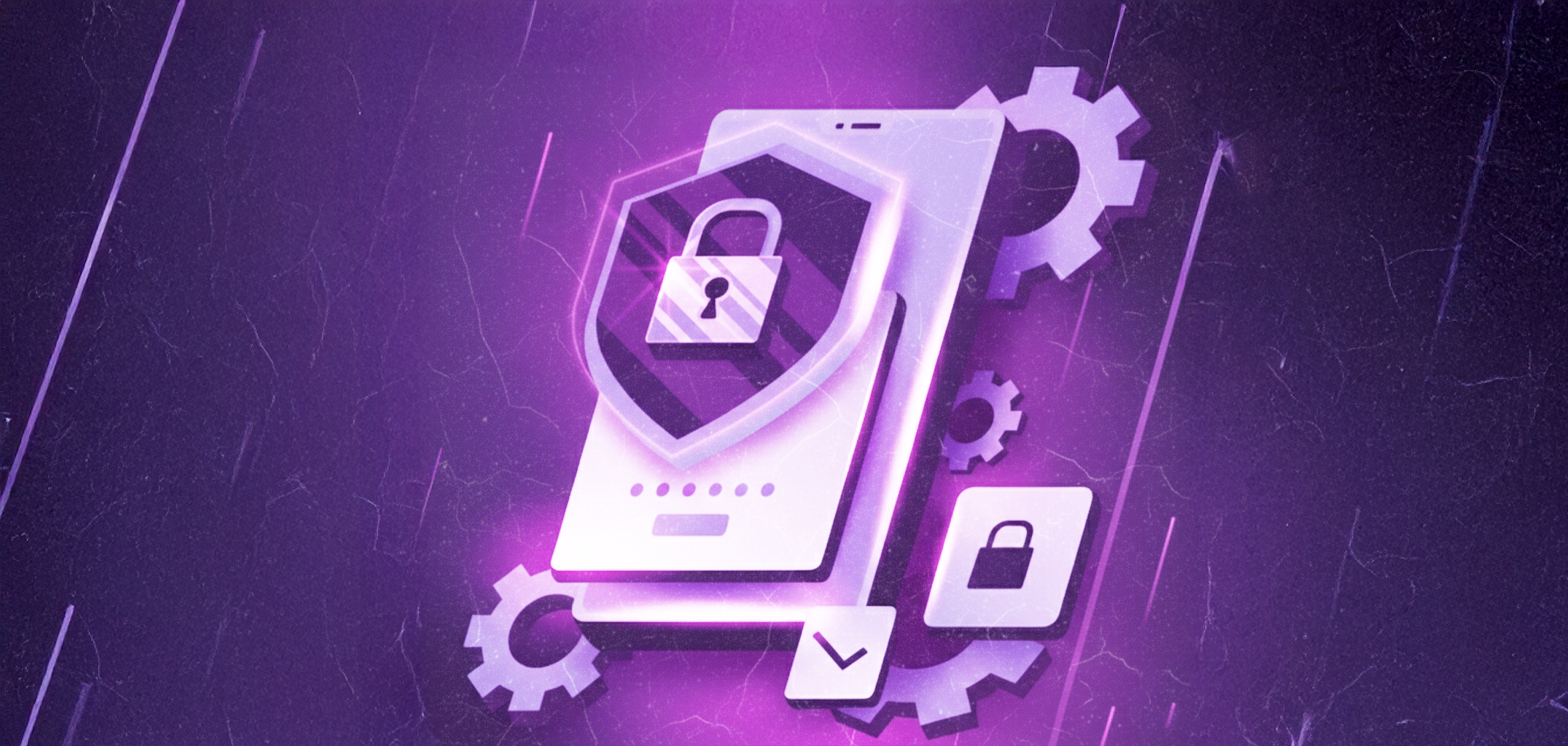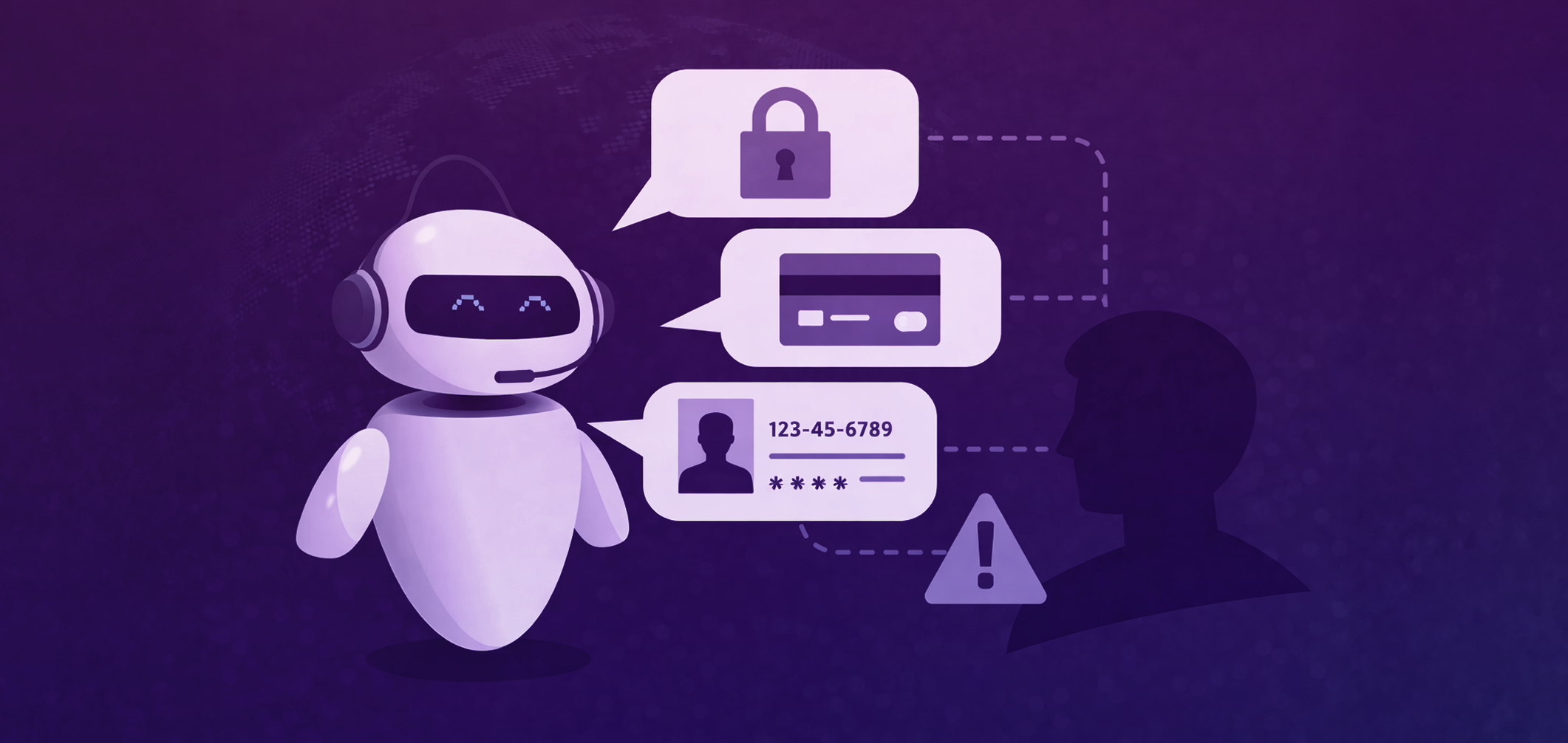Mindmasters: A Must-Read on Data Privacy and Personal Autonomy
Are you concerned about who holds your data and how they use it?
If so, Mindmasters by Sandra Matz is a must-read. This eye-opening book explores how today’s tech companies collect and manipulate personal data – often without us even realizing it – and what we can do to reclaim control. In this blog post, we’ll dive into the central themes of Mindmasters, from the psychological and ethical implications of rampant data collection to the solutions Matz proposes. Along the way, we’ll show how her insights connect directly to mePrism’s mission of empowering you to take back your privacy.
The Psychology and Ethics of Data Collection
Matz reveals a sobering truth: modern algorithms can peer into our minds and even shape our decisions. Through a process she calls psychological targeting, companies analyze our digital footprints – every click, search, and like – to decode our personality, preferences, and fears. “The moment they understand what is driving your behavior… they can also influence your behavior,” Matz explains. In other words, the data collected about you isn’t just for show; it’s used to nudge your choices, whether it’s buying a product or even voting for a candidate. This raises profound ethical questions: Is it okay for companies to wield such unseen influence over our lives? What happens to our autonomy when our desires can be predicted – or even engineered – by corporate algorithms?
A key concern highlighted in Mindmasters is how one-sided this data-driven power dynamic is. Companies sweep up vast troves of personal data with very little consumer awareness or genuine consent. We’ve all had that experience of hurriedly clicking “I Agree” on a privacy policy or cookie pop-up without reading it. Matz wryly notes that today’s consent process can be “more akin to the Las Vegas version of a wedding” – a quick, not fully thought-out commitment. In practice, users rarely know what they’re signing away. Tech firms exploit this information asymmetry, profiling and targeting us in ways we might never knowingly approve. The result is a dramatic power imbalance: data collectors hold all the cards, while individuals are largely in the dark.
This imbalance isn’t just theoretical – it has real consequences for our privacy and autonomy. When your every online action is tracked and analyzed, your ability to make free choices can erode. As Matz observes, privacy is a foundation for self-determination; giving up privacy means giving up some of our ability to make our own choices and live on our own terms. If companies know you better than you know yourself (as big data now often allows), they can subtly manipulate what you see and want. That’s why Matz and others call incidents like the Cambridge Analytica scandal merely “the tip of the iceberg”. In that case, a political consulting firm harvested Facebook data on millions of people without their consent, then micro-targeted them with ads to sway an election – a textbook example of exploiting personal data in unethical ways. But countless other organizations are doing similar things under the radar every day. Mindmasters makes clear that without changes, we risk losing our sense of agency in a world where companies quietly pull the strings.
“No Value, No Data”: Rethinking Consent and Control
How did we get here? Matz explains that today’s default approach to data is backwards. Right now, companies often assume they can take your data unless you object, burying consent in fine print. Mindmasters argues for flipping that script to an opt-in model where companies must earn your data. “The formula is simple: no value, no data,” Matz writes. In a world of true opt-in consent, vague promises from a company wouldn’t cut it – if you don’t clearly benefit from sharing your data, you simply wouldn’t share it. This principle puts the onus on companies to provide real value (better service, useful features, tangible rewards) before you hand over any personal information. It’s a powerful idea: your data isn’t taken for free up front; instead, you decide who gets it based on what you get in return.
Moving to an opt-in, “privacy by design” framework would fundamentally change the consumer-company relationship. Privacy by design means building products and services with data protection in mind from the ground up. Rather than collecting as much information as possible and worrying about consequences later, companies would minimize data collection, secure data by default, and give users clear choices. Matz gives the example of technologies like federated learning, which allow companies to personalize services without siphoning all your raw data to a central server. For instance, imagine a streaming app that sends a movie recommendation algorithm to your phone to learn from your viewing habits locally, instead of uploading your entire watch history to the cloud. You’d get great recommendations, and the company would improve its model, but your personal viewing data stays on your device. Solutions like this prove that we can have both privacy and personalized convenience – it’s not an either/or trade-off. By embracing privacy by design, companies can stop treating privacy as an obstacle and start treating it as a core feature that benefits everyone.
Crucially, Mindmasters stresses that consent must be informed and ongoing. It’s not enough to get a one-time “yes” by default. Users should remain in control, with the ability to revoke data access as easily as granting it. Matz illustrates this by reimagining something as simple as your Instagram feed. Today, you have to trust Instagram’s word that sharing more of your data gives you a better experience – there’s no easy way to compare what you see with vs. without your data being used. But if apps were opt-in, the baseline would be a privacy-friendly version, and you could selectively choose to share data for specific improvements. If the app doesn’t deliver extra value, you’d withdraw your data access (“no value, no data!”) and maybe even try a competitor who respects your choices. This vision puts users back in the driver’s seat, aligning services with our interests rather than exploiting our ignorance.
New Models to Empower Users: Data Co-ops and Collective Action
Beyond individual consent, Matz also explores collective solutions to tilt the balance of power back toward consumers. One intriguing idea from Mindmasters is the creation of data cooperatives – essentially user-owned data pools that serve the group’s interests. The concept is analogous to farmer co-ops or credit unions, but for personal data. Instead of each person handing their information directly to Big Tech, we could choose to contribute data to a cooperative that we collectively control. This data co-op would bargain with companies on our behalf or even monetize data for the users’ benefit, ensuring that if our data is used, it’s done transparently and with dividends (whether monetary or in kind) returning to members.
What would data co-ops achieve? For one, greater bargaining power. A thousand people acting together can demand better terms from a service than one person alone. Co-ops can also hire privacy and legal experts to vet how data is used, giving individuals access to expertise that big companies currently monopolize. Security could improve too: a co-op focused on its members’ interests would lock down data to high standards, rather than the lax controls of some corporations that keep suffering breaches. Perhaps most importantly, data co-ops offer “greater control over data usage” – you and your fellow members decide how your data can be used, instead of surrendering that decision to a dozen separate apps’ terms of service. Early examples of this approach are starting to appear, from driver collectives that share ride data for mutual benefit to cooperatives that let users earn income by voluntarily sharing anonymous browsing data. These experiments hint at a more equitable data economy, one where users collectively wield the power.
Matz underscores that none of these changes happen in a vacuum – they require a shift in mindset across society. She calls for regulations that increase transparency and accountability, but also for grassroots action: individuals supporting privacy-friendly businesses, joining data co-ops, and demanding better policies. The endgame Matz envisions is inspiring: a future where technology still reaps the benefits of data (for medical research, better services, societal insights) without trampling individual rights. In this future, privacy isn’t a relic or a luxury – it’s recognized as power. By protecting our privacy, we protect our freedom to be ourselves without constant surveillance. Mindmasters ultimately “presents a future vision that puts individuals in control of their digital privacy”, showing that we don’t have to accept the current imbalance as inevitable. There are concrete alternatives on the table – and some are already taking shape.
From Principles to Practice: How mePrism Rebalances the Data Game
After exploring Mindmasters, you might be wondering: how can I apply these ideas in my own life? This is where mePrism comes in. If Sandra Matz lays out the blueprint for a more balanced data relationship, mePrism is one of the practical tools building it here and now. Our platform was created with the same core principles that Mindmasters champions – privacy by design, user consent, and empowerment – to help you take back control of your personal data.
mePrism puts Matz’s recommendations into action through features designed for real users. Here’s how mePrism aligns with the book’s vision of an equitable data future:
Automated Data Removal: One of the biggest challenges is that our data has already been scattered across countless databases and broker lists without our consent. To rebalance power, you need the ability to pull your data out of the wrong hands. MePrism makes this easy with automated removal of your personal information from over 600 data brokers and websites. Instead of expecting individuals to contact each data holder one by one (an impossible task for anyone with a life), mePrism does the heavy lifting for you. This reflects Matz’s idea of “making it easy for people to protect their personal data and difficult for companies to abuse it.” By swiftly removing your data from places it doesn’t belong, we impose a cost on indiscriminate data collection and cut off the fuel that powers manipulative profiling.
Real-Time Transparency & Alerts: In Mindmasters, transparency is a recurring theme – users deserve to know who has their data and how it’s being used. MePrism delivers exactly that. Our app provides a real-time dashboard that shows where your data is exposed and sends instant alerts if it pops up somewhere new. This level of transparency turns the lights on in the dark room of data collection. No more guessing or blindly trusting a company’s word – you get concrete information about your digital footprint as it changes. Matz argues we need to “demand greater transparency and accountability from companies”, and mePrism’s live monitoring is a direct response to that demand. When you know what’s happening with your data in real time, you regain the situational awareness needed to make informed choices (and if necessary, hit the kill switch on sharing).
Privacy Control for Social Media: One of the most personal (and risky) data streams about you comes from social media. These platforms often have convoluted privacy settings that update constantly, making true control hard to maintain. MePrism simplifies this with a single dashboard to manage your privacy settings across major platforms like Facebook, LinkedIn, and Google. Think of it as your personal control center for privacy-by-design: you set the level of data sharing you are comfortable with, and mePrism applies it uniformly. This feature embodies Matz’s call to turn the default settings in our favor. Instead of accepting whatever data grabs the platforms have enabled, you can ensure your accounts are locked down to the degree you choose. By making privacy the convenient default, mePrism helps you preserve your autonomy on social media – those “virtual villages” where so much of our personal life now resides.
Opt-In Consent Framework: Perhaps most importantly, mePrism respects the “no value, no data” rule in its own operations. Our philosophy is that your data belongs to you, and nothing leaves your hands unless you opt in. Any time mePrism needs to act on your behalf – whether removing a data listing or adjusting a setting – you’re in control of approving that action. We never sell your information or exploit it behind the scenes. In fact, mePrism flips the usual script: rather than you having to trust a company blindly, we work to earn your trust at every step. This user-consent-first approach reflects exactly the world Matz wants to see, where companies must offer clear benefits and secure handling in exchange for data. With mePrism, you opt in to the services that protect you, and nothing more. It’s privacy on your terms – the way it should be.
In combination, these features of mePrism form a practical toolkit to rebalance the power dynamic between you and the data collectors. Instead of being a passive data source for others to exploit, you become an active manager of your digital self. Automated removals cut off unwarranted exploitation of your information. Real-time transparency keeps you informed, eliminating the shadowy “knowledge gap” that companies used to their advantage. Unified privacy controls and consent-based actions ensure that you decide how your data is used across the board. It’s exactly what Mindmasters advocates: redesigning the data game so that individuals, not corporations, hold the keys.
Conclusion: Reclaim Your Data Autonomy with Mindmasters and mePrism
Sandra Matz’s Mindmasters delivers a powerful message: we don’t have to accept a world of rampant data exploitation. The book exposes how today’s tech giants harvest and leverage our personal data with little oversight, but it also lights a path forward. By emphasizing psychological and ethical implications, Matz makes it clear that privacy is not just about data – it’s about our freedom and autonomy. And by proposing solutions like privacy by design, opt-in consent, and data co-ops, she shows that a better future is within reach, one where users are respected and empowered.
Reading Mindmasters is an inspiring wake-up call for anyone who has felt uneasy about their digital privacy. It arms you with knowledge about the “exciting – and terrifying – developments” in big data’s power over our lives. More importantly, it reminds us that we have a say in this narrative. We can demand better from the products we use and support technologies that put us first. This is precisely where mePrism aligns with Matz’s vision. We created mePrism to give everyone a fighting chance to protect their data and “take back control”. Our service is a practical manifestation of the principles in Mindmasters: transparency, fairness, and user-centric design in the realm of personal data.
If you’re ready to “ask more of your personal data” and those who want access to it, let Mindmasters galvanize you – and let mePrism assist you. We highly recommend picking up Sandra Matz’s book to fully appreciate the stakes and possibilities of the data-driven age. It’s informative, engaging, and at times startling, but ultimately empowering. By the final chapter, you’ll understand why tools like mePrism are so important. Together, informed by Matz’s insights and equipped with mePrism’s privacy platform, you can start to rebalance the digital power dynamic in your favor. Your data, your decisions – that’s the future Mindmasters and mePrism are working to achieve.
Take the first step: read Mindmasters to grasp the scope of the issue, and try mePrism to experience a solution in action. The era of feeling helpless about your personal data can come to an end. As Matz shows and we at mePrism believe, a more equitable data ecosystem is possible – and it starts with you. Protect your privacy, reclaim your autonomy, and join us in building a digital world that respects the individual. Your mind is yours – let’s keep it that way.
Ready to try mePrism yourself?
At mePrism, we help you take back control of your personal data. Our service scans the web for your exposed personal information—like your name, address, and contact details—and removes it from data broker sites that sell it without your consent. Whether you're protecting your privacy, reducing spam, or guarding against identity theft, we make the process simple, secure, and effective. Ready to clean up your online footprint?
Click here to create your Free Basic account.Explore more from Our Team
Browse more posts written by our team to help you stay in control.
Be Part of the Conversation





